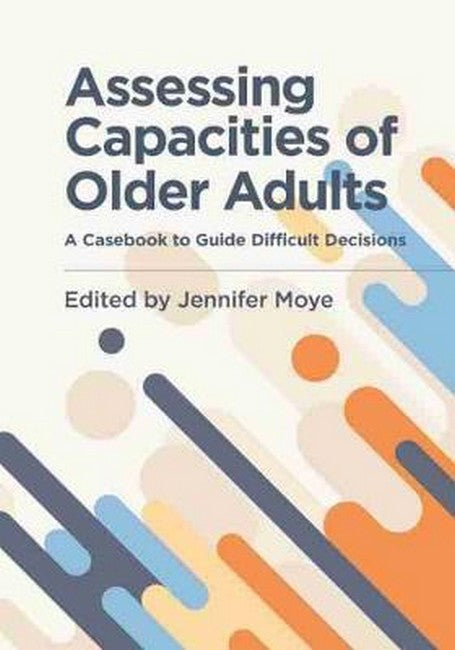Description
Contributors Acknowledgments Introduction, by Jennifer Moye Chapter 1. Understanding Legal and Clinical Capacities, by Jennifer Moye and Erica Wood Part I. Capacities in Diagnostic Contexts Chapter 2. Evaluating Capacities in Persons with Dementia, by Kyle S. Page and Kathleen C. Matthews Chapter 3. Evaluating Capacities in Persons with Serious Mental Illness, by Jessica V. Strong, Brian M. Ludwin, and Scott C. Fish Chapter 4. Evaluating Capacities After Traumatic Brain Injury, by Kristen Triebel, Sean D. Hollis, and Thomas A. Novack Part II. Capacities in the Setting of Elder Abuse and Exploitation Chapter 5. Assessment of Financial Exploitation, by Peter A. Lichtenberg Chapter 6. Assessment of Undue Influence, by Stacey Wood Chapter 7. Assessment of Independent Living Capacity in the Context of Elder Self-Neglect, by Michelle E. Mlinac and Pamela Steadman-Wood Chapter 8. Assessment of Testamentary Capacity, by Daniel C. Marson Part III. Evolving Issues in Assessing Capacities Chapter 9. Assessment of Sexual Consent Capacity, by Emma Katz, Rachael Spalding, Jarred V. Gallegos, and Barry Edelstein Chapter 10. Assessment of Capacity in Medical Aid in Dying, by Brian D. Carpenter and C. Caroline Merz Part IV. Negotiating Challenges With Families and Surrogates Chapter 11. Working With Surrogates Who May Lack Capacity or Be Unfit, by Kate L. M. Hinrichs and Ronald W. Smith Chapter 12. Addressing Family Conflicts When Assessing Capacities, by Amy E. Albright, Michelle M. Hilgeman, and Rebecca S. Allen Index About the Editor

